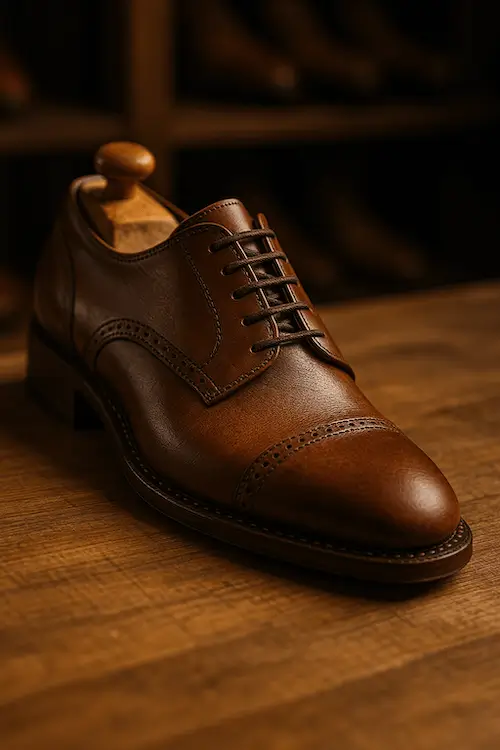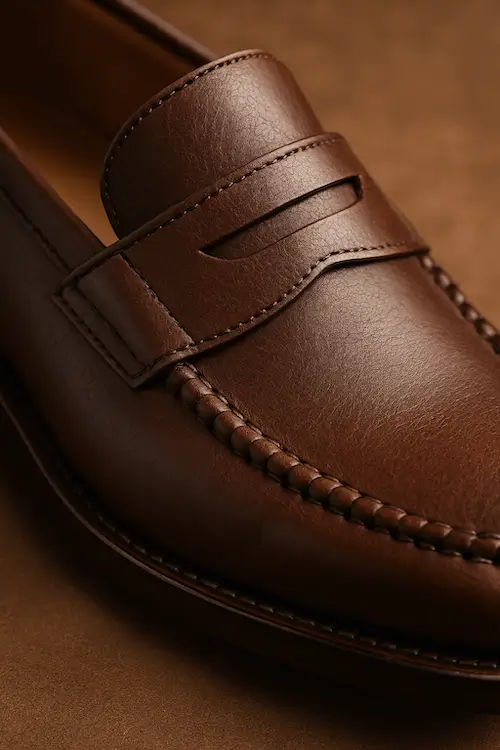How to Differentiate Yourself in the Handmade Footwear Market: Benefits and Opportunities
The handmade footwear market is experiencing rapid growth, with an increasing demand for high-quality shoes crafted from premium materials by skilled artisans. Retailers looking to differentiate themselves from the competition must understand the unique advantages that handmade footwear offers and capitalize on the opportunities presented by this growing trend.
The Growing Interest in High-Quality Handmade Footwear
Handmade footwear is becoming increasingly popular among U.S. consumers who are drawn to its superior quality and customization options. In a world where mass-produced shoes dominate the market, handmade footwear stands as an exception that fascinates those looking for exclusive, durable products made with care. This rising interest in handmade footwear is a golden opportunity for retailers to meet demand by offering products that highlight quality and uniqueness.
The main keyword of this article is handmade footwear, a concept at the heart of a market transformation. These types of shoes attract not only customers looking for high-quality products but also those who appreciate the craftsmanship and exclusivity of handmade items. Investing in a selection of handmade footwear can set your store apart from the competition, increase your brand reputation, and attract a loyal customer base willing to invest in durable products.
Benefits of Handmade Footwear for Retailers
Investing in handmade footwear not only provides a unique product to sell but also brings several benefits. First, they typically falls within a mid-to-high price range, allowing retailers to enjoy higher profit margins compared to mass-produced shoes. Additionally, these shoes offer the opportunity to customize products to meet specific customer needs, whether in terms of materials, colors, or design. This customization is highly appreciated by modern consumers, especially those seeking a unique product that reflects their personal style.
Another advantage of handmade footwear is the ability to create a genuine connection with the customer. Selling handcrafted shoes means telling a story—the story of the artisan who made them—which helps build an emotional bond, thereby increasing the perceived value of the product. The quality and durability of these shoes are also key factors in customer satisfaction and loyalty, as consumers know they can rely on a product that will last for years, reducing the need for frequent purchases.

How to Leverage the Handmade Footwear Trend to Differentiate from Competitors
For retailers, differentiating themselves in the handmade footwear market is not only about the quality of the product but also about how the brand is presented. Customization and exclusivity are key elements that can be used to attract and retain customers. Retailers who offer quality footwear that can be customized in terms of materials, colors, and finishes are in a prime position to stand out from the competition. Offering shoes that can’t be found anywhere else is a powerful way to attract customers willing to pay a premium for a unique product.
Another element that retailers can leverage is the Made in Italy factor. Italian handmade footwear, for example, is synonymous with high quality and tradition, a value that can help distinguish your store in the U.S. market. The quality of Italian footwear is globally recognized, and emphasizing this origin can attract a broader audience seeking excellence.
Building a Story Around the Product
Handmade footwear is not just shoes; it tells a story. This narrative is a powerful resource that retailers should use. Every pair of handcrafted shoes is the result of hours of work by skilled artisans who use traditional techniques to create a high-quality product. Telling this story to customers can make a difference in how they perceive the product and add value to it, justifying the higher price compared to mass-produced shoes.
Growth Opportunities in the Handmade Footwear Sector
The quality footwear market is expanding, and there are numerous opportunities for retailers who decide to enter this segment. In addition to attracting a more discerning audience seeking high-quality products, there is also a growing demand for customized shoes. The customization sector is expected to grow further, thanks to technological advancements that allow for increasingly sophisticated design options.

Conclusion
In an increasingly competitive footwear market, focusing on handmade footwear is a winning strategy for those looking to differentiate themselves. Offering unique, customizable, and high-quality products can attract a customer base willing to pay a premium for something special. Investing in quality, customer service, and product storytelling are all strategies that retailers can use to stand out and build lasting customer loyalty.
If you want to learn more about selling luxury shoes and developing a winning strategy, check out our article on how to sell luxury shoes, where we delve deeper into these strategies and offer practical tips to improve your business.

